Corporate Fraud And White-Collar Crimes: Legal Approaches To Detection And Prevention
Corporate fraud and white-collar crimes pose a significant threat to the
stability of financial markets, erode public trust in businesses, and inflict
substantial financial losses on investors and stakeholders. This research paper
delves into the legal landscape surrounding these offenses, exploring various
detection and prevention methods. It examines the characteristics of corporate
fraud and white-collar crimes, analyzing the challenges in uncovering and
deterring them. The paper then dissects the legal framework for tackling these
issues, focusing on relevant statutes, investigative procedures, and enforcement
mechanisms.
It explores the role of various stakeholders, including regulatory bodies, law enforcement agencies, internal control systems, and whistleblowers, in combating these financial crimes. Finally, the paper discusses emerging trends in corporate fraud and white-collar crimes, highlighting the need for continuous adaptation of legal and preventative measures.
Introduction
The financial landscape is often marred by the shadows of corporate fraud and white-collar crimes. These deceptive acts, characterized by a lack of violence and physical harm, inflict significant damage on economies, businesses, and individuals. Corporate fraud involves the manipulation of financial statements, accounting records, or other business processes for personal gain or to deceive stakeholders. White-collar crimes encompass a broader range of non-violent offenses typically committed by individuals in positions of trust, often involving financial motives. [1]
This paper examines the legal approaches employed to detect and prevent corporate fraud and white-collar crimes. It delves into the complexities of uncovering these offenses due to their inherent sophistication and the potential for collusion within organizations. The paper analyzes the legal framework established to combat these financial crimes, including relevant statutes, investigative procedures, and enforcement mechanisms. It explores the role of various stakeholders, from regulatory bodies with oversight responsibilities to internal control systems within corporations and the crucial role of whistleblowers in exposing misconduct.
The paper further explores the evolving nature of corporate fraud and white-collar crimes in the digital age. As technological advancements create new avenues for financial maneuvering, the legal and preventative measures need to adapt accordingly. Continuous vigilance and a multi-pronged approach are essential to safeguard the integrity of financial markets and build a more robust economic environment.
White-collar crimes, while similar to corporate fraud in their financial motives and non-violent nature, encompass a broader range of offenses often committed by individuals in positions of trust. These crimes can involve insider trading, tax evasion, mortgage fraud, healthcare fraud, and identity theft.[2] They typically rely on sophisticated schemes and utilize financial expertise to exploit vulnerabilities in systems and regulations.
Another challenge is the increasing sophistication of white-collar crime. Technological advancements have empowered perpetrators to exploit new avenues for financial maneuvering, such as cybercrime and cryptocurrencies. Regulatory bodies and law enforcement agencies often struggle to keep pace with the evolution of these schemes.[3]
Furthermore, the fear of reputational damage and potential business disruptions can discourage companies from actively investigating suspected fraud. This reluctance can lead to delayed reporting and hinder the effectiveness of preventative measures.
Relevant Statutes
Several key statutes define and criminalize corporate fraud and white-collar crimes. These laws vary depending on the jurisdiction but often include:
Conclusion And Recommendations
Corporate fraud and white-collar crimes pose a significant threat to financial stability, erode public trust, and inflict substantial losses. A multi-pronged approach is critical to combat these offenses. This approach requires robust legal frameworks, effective investigative procedures, and strong enforcement mechanisms. Additionally, fostering a culture of corporate governance, robust internal controls, and whistleblower protection are essential preventative measures. As the landscape of financial crime evolves, legal systems and preventative strategies need to adapt continuously to maintain a safe and secure financial environment.
Recommendations
By implementing these recommendations, a more comprehensive and effective approach can be established to deter, detect, and investigate corporate fraud and white-collar crimes. Fostering a culture of ethical behavior, robust legal frameworks, and continuous adaptation to emerging trends are essential for safeguarding the integrity of financial markets and promoting a healthy economic environment.
Conclusion
This research paper has explored the complexities of corporate fraud and white-collar crimes, highlighting the challenges in detecting and deterring these offenses. It has analyzed the legal framework established to combat these financial crimes, emphasizing the roles of various stakeholders. The paper concludes by discussing emerging trends and proposing recommendations for strengthening preventative and investigative measures. By adopting a multi-pronged approach, we can build a more robust and secure financial system, fostering trust and promoting sustainable economic growth.
It explores the role of various stakeholders, including regulatory bodies, law enforcement agencies, internal control systems, and whistleblowers, in combating these financial crimes. Finally, the paper discusses emerging trends in corporate fraud and white-collar crimes, highlighting the need for continuous adaptation of legal and preventative measures.
Introduction
The financial landscape is often marred by the shadows of corporate fraud and white-collar crimes. These deceptive acts, characterized by a lack of violence and physical harm, inflict significant damage on economies, businesses, and individuals. Corporate fraud involves the manipulation of financial statements, accounting records, or other business processes for personal gain or to deceive stakeholders. White-collar crimes encompass a broader range of non-violent offenses typically committed by individuals in positions of trust, often involving financial motives. [1]
This paper examines the legal approaches employed to detect and prevent corporate fraud and white-collar crimes. It delves into the complexities of uncovering these offenses due to their inherent sophistication and the potential for collusion within organizations. The paper analyzes the legal framework established to combat these financial crimes, including relevant statutes, investigative procedures, and enforcement mechanisms. It explores the role of various stakeholders, from regulatory bodies with oversight responsibilities to internal control systems within corporations and the crucial role of whistleblowers in exposing misconduct.
The paper further explores the evolving nature of corporate fraud and white-collar crimes in the digital age. As technological advancements create new avenues for financial maneuvering, the legal and preventative measures need to adapt accordingly. Continuous vigilance and a multi-pronged approach are essential to safeguard the integrity of financial markets and build a more robust economic environment.
Characteristics of Corporate Fraud and White-Collar Crimes
Corporate fraud encompasses a deliberate attempt to deceive stakeholders, including investors, creditors, and the public, for financial or reputational benefit. It often involves the manipulation of financial statements through techniques like overstating revenue, understating expenses, or creating fictitious assets. Common examples of corporate fraud include accounting fraud, embezzlement, bribery, and securities fraud.White-collar crimes, while similar to corporate fraud in their financial motives and non-violent nature, encompass a broader range of offenses often committed by individuals in positions of trust. These crimes can involve insider trading, tax evasion, mortgage fraud, healthcare fraud, and identity theft.[2] They typically rely on sophisticated schemes and utilize financial expertise to exploit vulnerabilities in systems and regulations.
Challenges in Detecting and Deterring Corporate Fraud and White-Collar Crimes:
Several factors contribute to the difficulty of detecting and deterring corporate fraud and white-collar crimes. One significant challenge lies in the inherent complexity of these offenses. Fraudulent schemes are often meticulously crafted, employing accounting tricks, shell companies, and intricate financial transactions to mask the true nature of the activity. Additionally, collusion within organizations can create an environment where fraudulent practices remain undetected for extended periods.Another challenge is the increasing sophistication of white-collar crime. Technological advancements have empowered perpetrators to exploit new avenues for financial maneuvering, such as cybercrime and cryptocurrencies. Regulatory bodies and law enforcement agencies often struggle to keep pace with the evolution of these schemes.[3]
Furthermore, the fear of reputational damage and potential business disruptions can discourage companies from actively investigating suspected fraud. This reluctance can lead to delayed reporting and hinder the effectiveness of preventative measures.
Legal Framework for Combating Corporate Fraud and White-Collar Crimes
A robust legal framework serves as the cornerstone for combating corporate fraud and white-collar crimes. This framework encompasses a combination of statutes, investigative procedures, and enforcement mechanisms.Relevant Statutes
Several key statutes define and criminalize corporate fraud and white-collar crimes. These laws vary depending on the jurisdiction but often include:
- Securities Laws:
- These laws, such as the Securities Act of 1933 and the Securities Exchange Act of 1934 in the United States, aim to protect investors by regulating the issuance and trading of securities. They define acts like insider trading and market manipulation as criminal offenses.[4]
- Anti-Bribery and Corruption Laws:
- These laws, such as the Foreign Corrupt Practices Act (FCPA) in the United States, prohibit companies and individuals from offering bribes to foreign government officials to secure business deals.
- Fraud Statutes:
- These laws, such as mail fraud and wire fraud in the United States, criminalize the use of fraudulent representations through various communication channels.[5]
- Anti-Money Laundering (AML) Laws:
- These laws aim to prevent the laundering of illegally obtained funds through financial institutions. They require reporting of suspicious activity and help trace the proceeds of crime.
Investigative Procedures
- Investigating corporate fraud and white-collar crimes often involves a multi-agency approach. Key players in the investigative process include:
- Law Enforcement Agencies:
- These agencies, such as the Federal Bureau of Investigation (FBI) in the United States, conduct criminal investigations, gather evidence, and execute search warrants.
- These agencies, such as the Federal Bureau of Investigation (FBI) in the United States, conduct criminal investigations, gather evidence, and execute search warrants.
- Regulatory Bodies:
- Regulatory bodies, such as the Securities and Exchange Commission (SEC) in the United States, have investigative powers to examine potential violations of securities laws. They can conduct interviews, subpoena documents, and impose civil penalties.
- Regulatory bodies, such as the Securities and Exchange Commission (SEC) in the United States, have investigative powers to examine potential violations of securities laws. They can conduct interviews, subpoena documents, and impose civil penalties.
- Internal Investigations:
- Companies with robust internal control systems may have dedicated teams to investigate suspected fraud. These investigations can uncover misconduct before it escalates and assist external authorities.
- Law Enforcement Agencies:
Enforcement Mechanisms
Following an investigation, various enforcement mechanisms come into play:Criminal Prosecution:
- If sufficient evidence exists, perpetrators of corporate fraud and white-collar crimes may face criminal prosecution. This can result in imprisonment, fines, and restitution to victims.
Civil Penalties:
- Regulatory bodies can impose civil penalties on companies and individuals found in violation of relevant laws. These penalties can be substantial and serve as a deterrent to future misconduct.
Non-Prosecution Agreements and Deferred Prosecution Agreements:
- In some cases, depending on the severity of the offense and the level of cooperation, authorities may offer non-prosecution or deferred prosecution agreements. These agreements typically require companies to implement significant reforms to prevent future violations and cooperate with ongoing investigations.
The Role of Stakeholders in Combating Corporate Fraud and White-Collar Crimes
Several key stakeholders play a crucial role in detecting and preventing corporate fraud and white-collar crimes. These stakeholders include:-
Regulatory Bodies:Regulatory bodies have the responsibility to establish and enforce regulations that promote transparency and accountability in corporate practices. They conduct periodic examinations of companies, analyze financial reports, and investigate potential violations. Their oversight role helps deter misconduct and fosters a culture of ethical behavior within businesses.
-
Law Enforcement Agencies:
Law enforcement agencies play a vital role in investigating and prosecuting corporate fraud and white-collar crimes. They utilize specialized investigative techniques, gather evidence, and collaborate with regulatory bodies to build strong cases against perpetrators. Effective law enforcement sends a clear message that financial crimes will be investigated and prosecuted.
-
Internal Controls:
Robust internal control systems within companies are crucial for preventing and detecting corporate fraud. These systems encompass clear policies and procedures, segregation of duties, and regular audits. They aim to create an environment where fraudulent activity is less likely to occur and is more easily identified if attempted.
- Whistleblowers: Whistleblowers are individuals within companies who report suspected corporate fraud or white-collar crimes. They play a critical role in exposing misconduct and triggering investigations. Whistleblower protection laws are essential for encouraging employees to come forward without fear of retaliation.
Emerging Trends and The Evolving Landscape
The landscape of corporate fraud and white-collar crime is constantly evolving. Here are some key emerging trends:- Cybercrime:
Technological advancements present new opportunities for perpetrators to exploit vulnerabilities in digital systems. Cybercrime tactics such as hacking, data manipulation, and identity theft are increasingly employed in financial fraud schemes.[6]
- Cryptocurrency:
The rise of cryptocurrencies has created new avenues for financial maneuvering and potential money laundering activities. Regulatory frameworks need to adapt to address the unique challenges posed by digital currencies.
- Globalized Markets: The increasingly interconnected nature of global markets presents complexities for investigating and prosecuting cross-border financial crimes. International cooperation between law enforcement agencies and regulatory bodies is crucial in combating these offenses.
Conclusion And Recommendations
Corporate fraud and white-collar crimes pose a significant threat to financial stability, erode public trust, and inflict substantial losses. A multi-pronged approach is critical to combat these offenses. This approach requires robust legal frameworks, effective investigative procedures, and strong enforcement mechanisms. Additionally, fostering a culture of corporate governance, robust internal controls, and whistleblower protection are essential preventative measures. As the landscape of financial crime evolves, legal systems and preventative strategies need to adapt continuously to maintain a safe and secure financial environment.
Recommendations
- Enhance Regulatory Oversight:
Regulatory bodies should continuously review and update regulations to address emerging trends in financial crime. This includes developing robust frameworks for regulating new technologies such as cryptocurrencies and strengthening cross-border cooperation for investigating and prosecuting international financial crimes.
- Invest in Investigative Resources:
Law enforcement agencies need adequate resources and training to investigate increasingly sophisticated white-collar crimes. This includes expertise in cybercrime investigation, financial analysis, and data forensics.
- Promote a Culture of Compliance:Companies should foster a culture of compliance within their organizations. This can be achieved by implementing comprehensive ethics training programs, promoting open communication channels for reporting suspected misconduct, and rewarding ethical behavior.
- Strengthen Internal Controls:
Developing and maintaining robust internal control systems are crucial for preventing and detecting fraud. This includes establishing clear policies and procedures, enforcing segregation of duties, and conducting regular internal audits.
- Empower Whistleblowers:
Whistleblower protection laws should be strengthened to encourage employees to report suspected wrongdoing without fear of retaliation. Additionally, establishing secure and accessible channels for reporting misconduct can significantly enhance the effectiveness of whistleblowing programs.
- Public Awareness Campaigns:
Public awareness campaigns can play a vital role in educating the public about the signs of corporate fraud and white-collar crimes. This can empower individuals to be more vigilant and report suspicious activity to authorities.
- International Cooperation: Collaboration between law enforcement agencies and regulatory bodies across borders is critical for combating international financial crime. This includes sharing information, coordinating investigations, and developing joint enforcement strategies.
By implementing these recommendations, a more comprehensive and effective approach can be established to deter, detect, and investigate corporate fraud and white-collar crimes. Fostering a culture of ethical behavior, robust legal frameworks, and continuous adaptation to emerging trends are essential for safeguarding the integrity of financial markets and promoting a healthy economic environment.
Conclusion
This research paper has explored the complexities of corporate fraud and white-collar crimes, highlighting the challenges in detecting and deterring these offenses. It has analyzed the legal framework established to combat these financial crimes, emphasizing the roles of various stakeholders. The paper concludes by discussing emerging trends and proposing recommendations for strengthening preventative and investigative measures. By adopting a multi-pronged approach, we can build a more robust and secure financial system, fostering trust and promoting sustainable economic growth.
- Delve deeper into specific types of corporate fraud or white-collar crimes:
- You can dedicate a section to discussing a specific type of fraud, such as accounting fraud or cybercrime, in more detail. This section can explore the specific methods employed by perpetrators, the challenges in uncovering these schemes, and relevant legal and investigative approaches.
- Provide case studies of high-profile corporate fraud or white-collar crimes:
- Analyzing real-world examples can illustrate the complexities and consequences of these offenses. You can discuss the specific fraudulent activities involved, the investigative process, and the legal repercussions faced by the perpetrators.
- Explore the ethical implications of corporate fraud and white-collar crimes:
- You can dedicate a section to the ethical ramifications of these offenses. This section can discuss the impact on stakeholders, the erosion of public trust, and the importance of corporate social responsibility in preventing such misconduct.
- Wells, J. T. (2019). Corporate fraud handbook: Prevention and detection. John Wiley & Sons.
- Bologna, J. (2018). The new era of corporate fraud: From enslavement to privilege. Routledge.
- KPMG. (2020). Global profiles of the fraudster. Retrieved from https://home.kpmg/xx/en/home/insights/2018/06/global-profiles-of-the-fraudster.html
- Albrecht, W. S., Albrecht, C. O., Albrecht, C. C., & Zimbelman, M. F. (2019). Fraud examination. Cengage Learning.
- Bologna, J. (2016). Corporate crime and financial fraud: A comprehensive approach to fraud detection and prevention. Routledge.
- Association of Certified Fraud Examiners (ACFE). (2020). Report to the nations: 2020 global study on occupational fraud and abuse. Retrieved from https://www.acfe.com/report-to-the-nations/2020/
- Button, M., & George, B. (Eds.). (2019). Fraud and misconduct in research: Detection, investigation, and organizational response. Springer.
- Deloitte. (2020). Corporate fraud. Retrieved from https://www2.deloitte.com/global/en/pages/finance/articles/corporate-fraud.html
- Levi, M. (2019). The prevention of fraud by individuals against businesses: A situational approach. European Journal on Criminal Policy and Research, 25(2), 121-136.
- Johnston, J. (2016). White-collar crime: The essentials. Sage Publications.
- Geis, G. (2016). White-collar and corporate crime: A documentary and reference guide. ABC-CLIO.
- Simpson, S. S. (Ed.). (2019). The Palgrave handbook of corporate fraud. Palgrave Macmillan.
- Benson, M. L., & Simpson, S. S. (Eds.). (2018). White-collar crime: An opportunity perspective. Routledge.
- Zekos, G. I. (Ed.). (2017). Corporate fraud and corruption: A holistic approach to preventing financial crises. IGI Global.
- Hoffmann, J., & Madinger, F. (Eds.). (2017). Corporate fraud and internal control: A framework for prevention. Springer.
- Glick, M. P. (2018). Accounting for fraud: Detection, prevention, and prosecution. Wiley.
- Furlonger, A. (2018). Corporate fraud: A cybercriminal's best friend? Journal of Financial Crime, 25(4), 1080-1088.
- Dimnik, T. (2019). Detecting corporate fraud: A reexamination and extension of the SVD-based model. Journal of Forensic Accounting Research, 4(1), A60-A81.
- Geis, G. (2017). White-collar crime: An opportunity perspective. Routledge.
- Treadwell, J., & Bucy, P. H. (Eds.). (2019). The SAGE encyclopedia of corporate reputation. Sage Publications.
- "White-collar crime | Corporate Fraud, Money Laundering & Cybercrime | Britannica." https://www.britannica.com/topic/white-collar-crime
- "A Case Study on Corporate Crimes in India," iPleaders, https://blog.ipleaders.in/white-collar-crime/
- Thinking About White Collar Crime: Matters of Conceptualization and Research, Office of Justice Programs, https://ojp.gov/
- Securities Act of 1933: https://www.govinfo.gov/content/pkg/COMPS-1884/pdf/COMPS-1884.pdf
- Cybercrime: https://www.europol.europa.eu/crime-areas/cybercrime
- "Sarbanes-Oxley Act of 2002 - Whistleblower Protection," U.S. Department of Labor, https://www.whistleblowers.gov/statutes/sox_amended
- Rituporna Das - Amity Law School, Lucknow
- Dr. Anuj Kumar Sharma - Amity Law School, Lucknow
Law Article in India
Legal Question & Answers
Lawyers in India - Search By City
LawArticles
How To File For Mutual Divorce In Delhi

How To File For Mutual Divorce In Delhi Mutual Consent Divorce is the Simplest Way to Obtain a D...
Increased Age For Girls Marriage

It is hoped that the Prohibition of Child Marriage (Amendment) Bill, 2021, which intends to inc...
Facade of Social Media

One may very easily get absorbed in the lives of others as one scrolls through a Facebook news ...
Section 482 CrPc - Quashing Of FIR: Guid...

The Inherent power under Section 482 in The Code Of Criminal Procedure, 1973 (37th Chapter of t...
The Uniform Civil Code (UCC) in India: A...

The Uniform Civil Code (UCC) is a concept that proposes the unification of personal laws across...
Role Of Artificial Intelligence In Legal...

Artificial intelligence (AI) is revolutionizing various sectors of the economy, and the legal i...
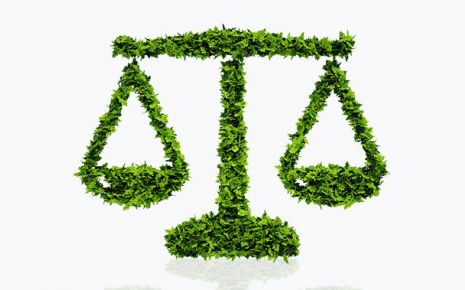
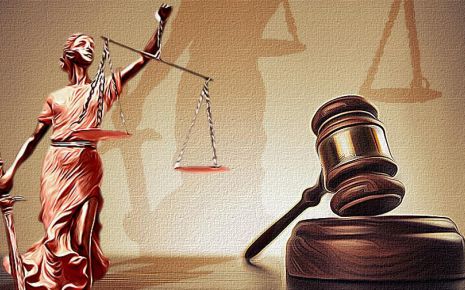
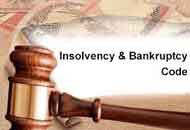
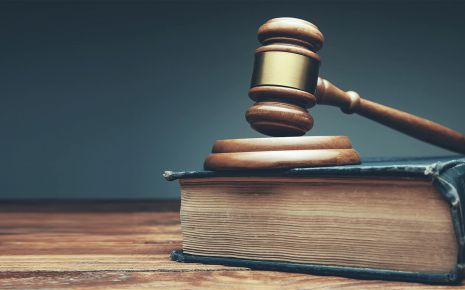
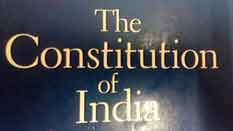
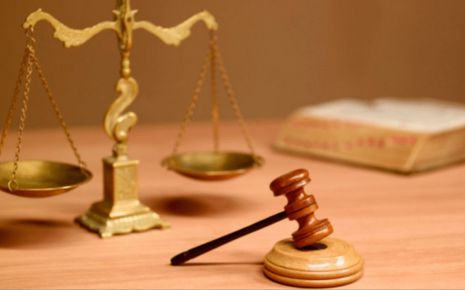


Please Drop Your Comments